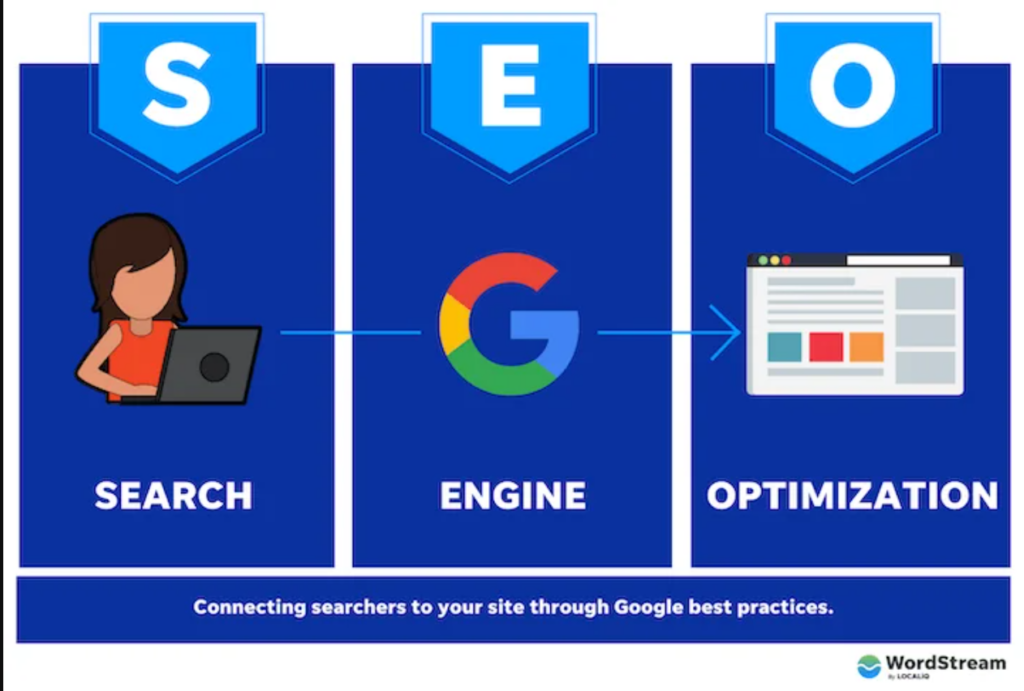
In the competitive world of education, institutions must adopt effective marketing strategies to stand out and attract students. With more options available than ever before, educational institutions need to implement innovative approaches to build their reputation, increase enrollments, and create a lasting impact. In this article, we’ll explore 15 Marketing Approaches for Education Sector Success. These strategies will help you navigate challenges, engage your audience, and build a thriving institution.
1. Build a Strong Digital Presence: Marketing Approaches for Education Sector Success

A strong digital presence is crucial in today’s education market. Most students and parents begin their search for educational institutions online, making it vital for schools, colleges, and universities to have an engaging, informative website.
Your website should be user-friendly, with easy navigation, comprehensive course details, and testimonials from alumni. In addition, being active on social media platforms such as Instagram, LinkedIn, and Facebook helps to create an engaging relationship with your audience. This online visibility helps students make informed decisions.
2. Create Compelling Content Marketing: Marketing Approaches for Education Sector Success

Content marketing allows educational institutions to establish authority and build trust with prospective students. Blogging, video content, and infographics can effectively communicate the values, services, and success stories of your institution.
Publish articles about the benefits of your courses, success stories from students or faculty, and insights into student life. This content not only informs but also builds a sense of community and connection with your audience. Consistent, valuable content will also help with SEO rankings.
3. Utilize Search Engine Optimization (SEO): Marketing Approaches for Education Sector Success

SEO is an essential tool for making your institution’s website visible in search engine results. By optimizing your content with relevant keywords and phrases, you improve the chances of attracting prospective students.
Ensure that your website content includes keywords such as “best online courses,” “affordable education,” or “top colleges” to increase visibility. Additionally, creating landing pages with relevant content specific to different programs can drive targeted traffic to your site, ultimately increasing conversion rates.
4. Implement Targeted Social Media Campaigns: Marketing Approaches for Education Sector Success
Social media platforms are an excellent way to engage with a broader audience. Implementing targeted social media campaigns, based on demographics, interests, and behavior, can help institutions reach prospective students effectively.
Create tailored ads for specific age groups or educational needs. For example, a campaign targeting high school seniors interested in engineering courses can focus on showing them success stories of graduates. Platforms like Facebook, Instagram, and TikTok also allow for interactive features like live Q&A sessions and behind-the-scenes videos, enhancing engagement.
5. Host Webinars and Virtual Campus Tours: Marketing Approaches for Education Sector Success
Virtual events have become increasingly popular, and hosting webinars or virtual campus tours is a fantastic way to engage prospective students. Webinars on course offerings, career opportunities, or admissions processes can provide direct access to important information.
Offering virtual campus tours provides students who cannot visit in person a chance to experience your campus, interact with current students, and ask questions. These events build trust and can significantly influence students’ decision-making.
6. Leverage Influencer Marketing: Marketing Approaches for Education Sector Success
Influencer marketing has proven to be highly effective in engaging younger audiences. Partnering with education-focused influencers or alumni who have large followings can amplify your institution’s message.
These influencers can share their experiences, talk about your courses, or promote events, providing a more authentic way of connecting with prospective students. Their endorsement can lend credibility to your institution and drive more interest in your programs.
7. Engage in Email Marketing: Marketing Approaches for Education Sector Success
Email marketing remains one of the most effective ways to communicate with prospective and current students. Regular newsletters with updates on courses, upcoming events, or scholarship opportunities can keep students engaged and informed.
Personalizing emails based on a student’s interests or application status adds a personal touch. Sending follow-up emails after an inquiry or event can help convert leads into actual enrollments. It’s crucial to ensure your email content is valuable and engaging.
8. Foster Strong Alumni Relations: Marketing Approaches for Education Sector Success
Your alumni are some of your most valuable assets. They are a living testament to the success and quality of your education. Establishing strong alumni networks and involving them in marketing initiatives can be an excellent way to promote your institution.
Encourage alumni to share their success stories through blogs, testimonials, or even speaking at events. Their experiences can inspire prospective students to follow in their footsteps. Highlighting alumni achievements can showcase the impact your institution has on career success.
9. Offer Scholarships and Financial Aid Information: Marketing Approaches for Education Sector Success
Financial concerns are often a significant barrier to students pursuing education. By promoting scholarships and financial aid options, you make your institution more accessible and attractive to a wider pool of prospective students.
Provide clear, concise information about available scholarships, financial aid programs, and the application processes. Offering financial assistance is a powerful tool in increasing applications and improving your institution’s appeal.
10. Run Referral Programs
Referral programs are an excellent way to leverage existing students, alumni, or faculty in spreading the word about your institution. Offering incentives for referrals—whether through discounts, merchandise, or recognition—can motivate students and alumni to bring in new candidates.
Referral marketing creates a sense of community and trust, as people are more likely to trust recommendations from peers. This strategy can significantly increase awareness and lead to more applications.
11. Partner with Local Schools and Organizations
Collaborating with local schools, community organizations, or even businesses can help increase awareness of your institution in specific geographic areas. Hosting joint events, such as workshops, career fairs, or open houses, can help reach a targeted audience.
These partnerships also strengthen your connection with the community, making your institution more approachable. Local partnerships can be especially effective in recruitment for programs that cater to the local workforce or specific regional industries.
12. Develop Interactive and Engaging Landing Pages
Creating dedicated landing pages for specific courses, programs, or events enhances user experience and helps convert visitors into leads. An engaging landing page provides clear information, an easy registration process, and compelling calls-to-action.
Make sure that each landing page is optimized for SEO to attract the right audience. Providing easy access to registration forms, course syllabi, and student testimonials will help prospective students make decisions faster.
13. Focus on Brand Reputation Management
Your institution’s reputation plays a crucial role in its success. Actively manage and protect your brand’s image by encouraging positive reviews, addressing negative feedback, and consistently showcasing your strengths.
Use review platforms, such as Google Reviews or Trustpilot, to encourage students and parents to share their experiences. A solid reputation helps instill trust, improve visibility, and attract more applications.
14. Offer Online Courses and Distance Learning Options
The demand for flexible learning options is growing, and offering online courses or distance learning programs can broaden your reach beyond local students. This approach is especially effective for working professionals or students in remote areas.
Promoting your online programs through various marketing channels, such as email campaigns or social media ads, can help attract a wider range of students. Highlight the flexibility, affordability, and convenience of online education to increase enrollment.
15. Incorporate Personalization in Marketing Campaigns
Personalized marketing campaigns are an effective way to connect with prospective students. Tailor your messages to address individual needs, such as specific academic interests or career aspirations, making your marketing efforts more relevant and impactful.
Personalization can be as simple as addressing prospective students by name in emails or showcasing relevant programs based on their interests. Offering personalized advice or information through virtual consultations can also make prospective students feel valued and heard.
Conclusion
In an ever-evolving education landscape, adopting the right marketing strategies can significantly impact an institution’s success. By focusing on digital marketing, creating valuable content, leveraging social media, and building strong relationships with alumni and students, educational institutions can increase their visibility, attract more students, and ultimately succeed in a competitive market.
Each of these 15 marketing strategies is designed to enhance your institution’s presence, build trust, and foster lasting connections with prospective students. Implementing a combination of these approaches will allow you to effectively market your educational programs and achieve sustainable growth.